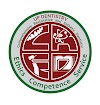Pat Robles
UP Manila College of Medicine together with Community Oriented Medical Education Unit, Social Medicine Unit, and Center for Gender and Women’s studies came up with the five-day "2nd UP Global Health Course" held April 4-9, 2006. Workshops and mentoring sessions were intended for Medicine, Nursing, Dentistry and other allied health professions students in Southeast Asia and the Western-Pacific region.
Health issues discussed were global burden of disease: prevention, management and control; global trends in injuries and accidents; impact of war and conflict on health; natural disasters and calamities; dynamics of health and the environment; reproductive and sexual health; health of indigenous peoples; and children’s rights and health.
Health educators recognize the need for an integrated, interdisciplinary approach and global cooperation for promotion of health. The challenge of achieving equity and "health for all" is continually confronting us, and the university, being a socially-responsive community-based institution, would like to address both local and international health issues. Global health problems were presented, including medical practices in different countries with solutions based on the Alma Ata Declaration or Rights-based, because quite a number of practitioners have become socially insensitive brought about by the rise of capitalism.
Dr. Jean Marc Olivé, WHO country representative to the Philippines, made participants aware of the health situation of the Philippines. One of the major problems seen here is the situation of health professions. Statistics of students getting into medical education has been going down for the past few years except for nursing. Most graduates are flying abroad for greener pastures, leaving the country lacking in manpower.
Partnership was discussed – highlighting on choosing the right sponsor or "partner" for a project (e.g.: not getting tobacco companies to sponsor sports festivals). Technology plays a part in the health situation and a talk on Informatics and choosing references over the net were presented to help in recognizing quackery articles – which could be very misleading.
The seminar presented to the group the reality of health worldwide. Awareness is the first step in developing solutions to problems. This is a very long process but by working hand-in-hand, all health professionals, including dentists, would be able to deal with them. After all, there is more to being a dentist than just saving the world from cavities.









